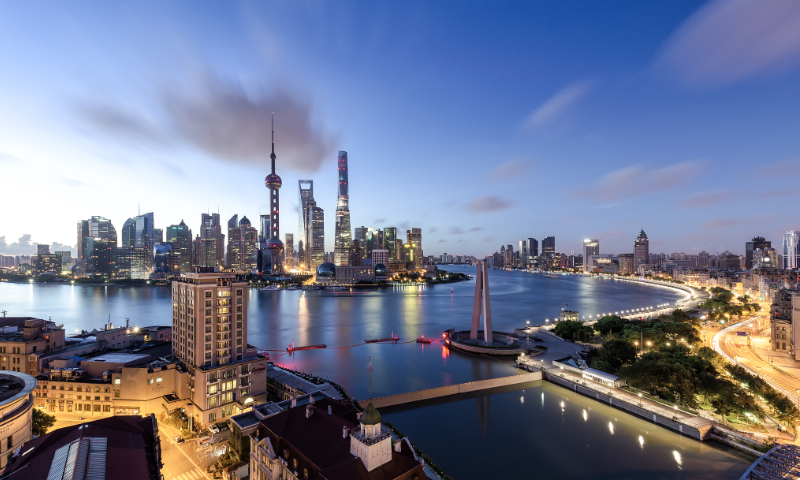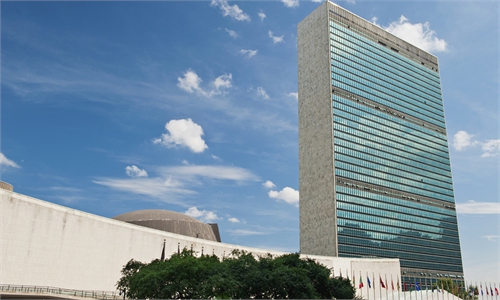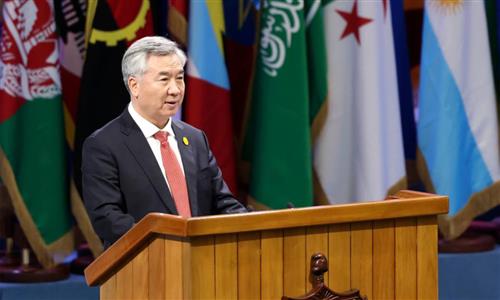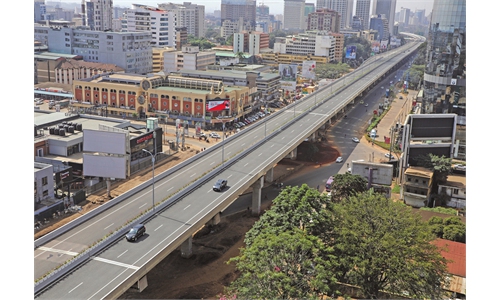
A view of Shanghai Photo: VCG
The United Nations General Assembly is currently underway, and countries of the "Global South" are receiving particular attention. In fact, since this year, from India hosting the online "Voice of Global South Summit" to the Munich Security Conference mentioning "Global South" 55 times in its report, from the Group of Seven (G7) summit in Hiroshima emphasizing the strengthening of relations with the "Global South" to Western countries and Russia vigorously seeking the support of "Global South" countries over the Ukraine issue, the strategic importance of the "Global South" has become increasingly prominent, and the popularity of this concept continues to rise.
The popularity of the "Global South" concept may be linked to two specific events: The first is the "Voice of Global South Summit" held by India on January 12 and 13 of this year, with the participation of 120 countries, although China was not invited; the second event is the G7 summit held in Hiroshima, Japan in May. This summit had two agendas, one of which was to "strengthen ties with the Global South," leading to the invitation of some developing countries, while China, similarly, was not invited.
In reality, the concept of the "Global South" still has many ambiguous aspects at present, and the idea of a "Global South" without China is even a pseudo-proposition.
Firstly, there is currently no universally recognized standard for defining "Global South." For example, some people believe that if the "Global North" refers to developed countries, then the "Global South" represents a synonym for developing countries, underdeveloped nations, and less-developed countries. Others argue that after the end of the Cold War and the disappearance of the Soviet Union, there was a significant shift in the world order, and as a result, "Global South" gradually replaced the term "Third World." In other words, "Global South" replacing "Third World" continues to carry strong political connotations.
Because the definitions of "Global South" are diverse, many people often use or interpret this term as they please, parroting or presenting their own understanding and definitions of "Global South." In terms of the purpose of this definition, one view is that the concept of "Global South" highlights the multiple impacts of globalization on developing countries; another view is that "Global South" embodies the determination of "the South" countries to resist the hegemonic power of "the North" countries. It can be imagined that such arbitrary speculation or self-talk can only lead to confusion in academic theories and concepts, and even result in different opinions.
Secondly, the G7 led by the US and some Western public opinion hype up the "Global South" with the motive of excluding China from the family of developing countries. As early as when Donald Trump was in office, the US had hyped up the idea that "China is not a developing country."
In the "Memorandum on Reforming Developing-Country Status in the World Trade Organization" published on July 26, 2019, the US announced in a high profile that "the United States has never accepted China's claim to developing-country status." As for why the US promotes India to become the leader of the "Global South," on the one hand, it is nothing more than wanting to use India's role as the rotating chair of the G20 to enhance its international status and woo India before the G20 meetings; on the other hand, it is an attempt to drive a wedge between China and India and exclude China from the "Global South" family.
However, the international status of a country is not determined by a few countries, but by the majority of countries in the world. The US and West have their own calculations, but they have miscalculated from the very beginning. The United Nations Development Programme, in a research report about building a "Global South" in 2004, explicitly included China in the category of "Global South" countries.
Indeed, China's economy is rapidly developing and its international status is increasing day by day, but China's status as a developing country has not fundamentally changed. China is still in the primary stage of socialism and its basic national conditions have not changed. China's international status as the largest developing country in the world remains unchanged. As President Xi Jinping emphasized in his important speech at the High-level Dialogue on Global Development on June 24, 2022, China has always been a member of the big family of developing countries.
Moreover, some people in the West attempt to exclude China from the "Global South," but they cannot deny our close ties and cooperation with developing countries, nor can they deny the contributions China has made to the development of "the South" countries and South-South cooperation. In fact, China has made significant contributions to South-South cooperation in the past and present, and will continue to make efforts in the future.



